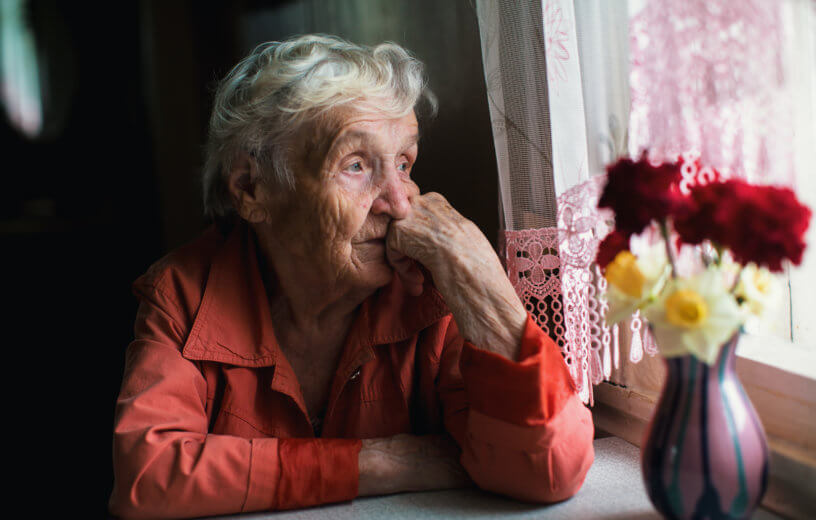DURHAM, N.C. — We all have a certain idea in our heads about how our relationships with others should go, but reality is often a very different experience. When an old friend doesn’t text back, or a significant other is more callous than caring, these expectations can be turned on their head. New research from Duke University explains that these discrepancies are a driving force behind the feeling of loneliness.
In collaboration with Duke psychology and neuroscience Ph.D. Leon Li, scientists researched why people feel lonely, especially as they grow older, and what can be done about it.
“Loneliness results from a discrepancy between expected and actual social relationships,” says first study author and King’s College London graduate student Samia Akhter-Khan in a media release. “The problem that we identified in current research was that we haven’t really thought about: What do people expect from their relationships? We work with this definition of expectations, but we don’t really identify what those expectations are and how they change across cultures or over the lifespan.”
Every human relationship comes with a set of basic expectations. Most individuals want people in their lives they can turn to for help. We all need people we can trust, and companions with whom we can share life experiences. However, according to the study authors’ theory, called the Social Relationship Expectations Framework, older individuals may have certain relationship expectations that are going overlooked.
On the surface, loneliness is cut and dry: Spend enough time by yourself, isolated, and you’ll start to feel lonely. Akhter-Khan explains that her first clue that loneliness is more complex than that came around 2018-2019 while she was studying aging in Myanmar. Back then, she originally thought the people she was analyzing wouldn’t display loneliness. “People are so connected and live in a very close-knit society. People have big families; they’re often around each other. Why would people feel lonely?”
It quickly became clear the collected data suggested otherwise, indicating people can still feel very lonely despite not spending much time alone. She believes that most modern efforts to reduce loneliness have failed to account for how our relationship expectations change as we get older. What a 35-year-old wants from their social connections is usually going to be different than what a 70-year-old wants.
Loneliness ‘peaks’ twice in life, research shows
Study authors detail two age-specific expectations that have not been taken into account thus far. First, older adults often want respect. They want to be listened to, and for others to take an interest in their experiences, learn from their mistakes, and appreciate what they’ve been through and the obstacles they have overcome.
Secondly, older adults want to contribute. They want to give back to others and their community, passing down their own traditions or skills via any combination of teaching and mentoring, volunteering, caregiving, or other activities. Determining meaningful ways to fulfill these expectations as we get older may lower rates of loneliness across older populations considerably – but research has largely failed to consider this aspect of loneliness.
“They’re not part of the regular scales for loneliness,” Li says.
This oversight may be related to the fact that labor and contributions made by older people often go unaccounted for in typical economic indices, according to Akhter-Khan. “Ageism and negative aging stereotypes don’t help,” she adds.
Still, loneliness certainly isn’t reserved for only the old. “It is a young people’s problem as well,” Akhter-Khan continues. “If you look at the distribution of loneliness across the lifespan, there are two peaks, and one is in younger adulthood, and one is an old age.”
The COVID-19 pandemic and subsequent lockdowns led to record rates of loneliness in recent years, but even before then many countries began “sounding the alarm” on loneliness as a public health issue. The U.K. named a “minister for loneliness” in 2018, for example.
Loneliness, of course, can have a far greater impact than inducing a frown. Persistent loneliness has been connected to a higher risk of dementia, heart disease, stroke, and other health issues. Study author hope their work helps promote a more comprehensive understanding of what causes loneliness, ideally leading to more ways to address it.
The study is published in Perspectives on Psychological Science.

Loneliness is often a harbinger of depression and suicide. People forget, expectations and friendships is a two-way street. And truthfully friends aren’t lost. They are abandoned